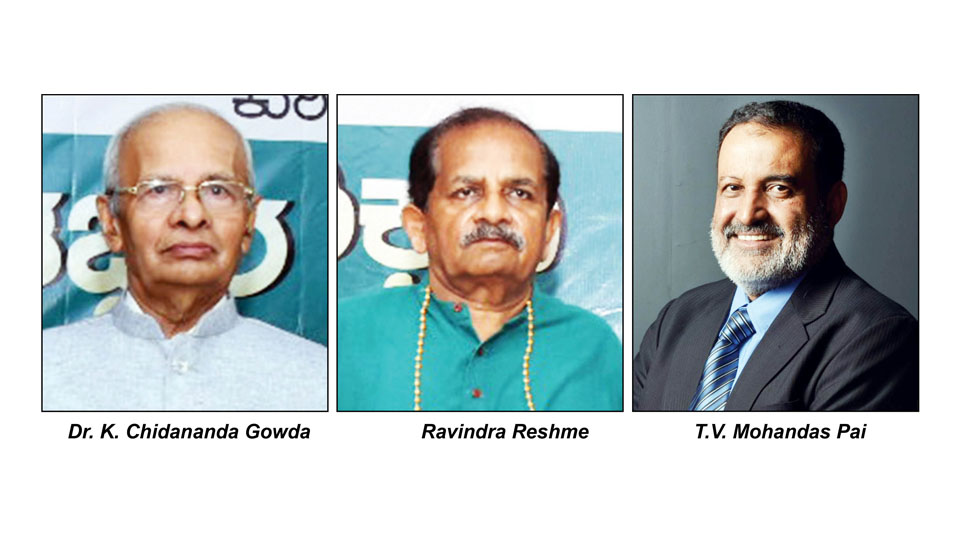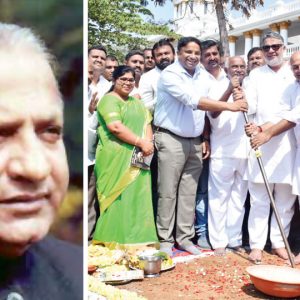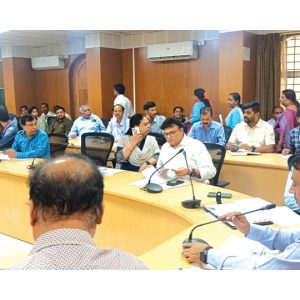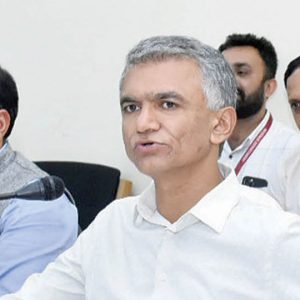
The education policy for our independent India that is Bharat was simply a carry over of what Britishers gave us during their colonial rule of our country. After independence, there was a hurriedly prepared education policy that was put in place in 1948 when our present Constitution was not framed.
As a result, I knew more about Trafalgar Square in London than our own K.R. Circle. I knew more of Queen Victoria and King George V than our own Maharajas and Maharanis, who also ruled in many kingdoms of our huge country.
Foreign invaders were glorified for their valour at the cost of the Hindu kings and queens, who also fought bravely and lost because of betrayers and traitors.
If this is about political history, there was also social and economic history which was given an adverse narrative blaming the Hindu religion and the social structure. All this is understandable because it was in the interest of the conqueror and the coloniser to project an image that would demoralise the conquered or colonised people.
However, it was unfortunate that even after giving unto ourselves a Constitution (mother of all other statutes and laws enacted by the Parliament) our National Education Policy-2020 (NEP-2020) could not be implemented in all the States to reclaim our lost opportunity and to learn about the true history of our country.
For any civilised nation, the most important renewable resource to develop the country’s infrastructure and economy (to lead a better life with swabhiman) is the people of that country. In order to enrich this human resource in a democratic country, it is important as much as imperative that the people must be provided with the new policy of education, abandoning the burden of the old colonial dispensation.
It is true that there were three National Education Policies framed in 1948, 1968 and 1986, but unfortunately only cosmetic changes were made to what the Britishers had given us. Unfortunately, it had an element of appeasement to minorities which came to be known as vote-bank politics. Certainly it was not a sound education policy.
Education, which is administered mostly by the Government after independence in Government-run schools, did not have any change in the text books on the narrative of history, economics and sociology. As far as science text books are concerned, no prejudice or distortion was possible. You cannot defy or deny the law of gravitation nor make 2+2 = 5 !
However, institutions run by the minority communities enjoyed their rights under the Constitutional provisions where they could impart education to the students not only about their religion but also ethics and moral derived from their culture.
The famous Constitutional lawyer of India, Fali S. Nariman, in his autobiography titled ‘Fali S. Nariman, before memory fades…’ writes about a case about the rights of all minorities (about their religion, language) to establish and administer educational institutions of their choice and also to establish schools and colleges “for general education.” Nariman had appeared in this case for the Hindu religious majority client. Of course, he lost the case.
Nariman recalls with a sense of disappointment about two important cases he lost in the Supreme Court despite their merit. Being a journalist myself and also the stakeholder of a newspaper, let me mention here the other case he lost in the Supreme Court despite its merit.
That case relates to the Freedom of the Press (Freedom of Speech and Expression as enshrined in the Constitution). The other case was, of course, about the rights of all minorities to establish and administer educational institutions as against the right of the majority religion.
To revert to the NEP, the Constitution provides in the Seventh Schedule (Article 246) what is known as ‘Subject matter of laws made by the Parliament and by the Legislators of the States — List 1, List 2, List 3. Central List, State List and Concurrent List.’
The subject related to education is in the Concurrent List. It says that the Legislature of the State may make laws under this Concurrent List for the whole or any part of the State. However, the laws made by the Parliament would prevail. The NEP is only a policy statement and not a law. Therefore, the Congress Government of Karnataka has now decided to reject NEP and frame its own education policy. That is a clear case of politics taking precedence over what is good for the State and its people for posterity.
It is in this context we must listen to educationists like Professor, former Vice-Chancellor Dr. K. Chidananda Gowda; litterateur, veteran journalist and political commentator Ravindra Reshme and the current Chairperson of Manipal Global Education T.V. Mohandas Pai.
Political vendetta or revenge is not in the interest of our today’s children who will be our country’s citizens tomorrow.
In Siddharamaiah’s decision to junk the National Education Policy-2020 (NEP-2020), there is a danger of our State lapsing into an educational policy that is myopic, sans vision for the good of our Kannada children.
Siddharamaiah, an accidental Chief Minister this time, after scrapping the Centre’s new National Education Policy, may come up with his own State Education Policy (SEP) to appease communities and castes to boost his vote-bank account. He will become his master’s voice.
Sadly, even after independence, India that is Bharat has been suffering the dominant presence of Lutyens, the architect who built New Delhi and the old Parliament House and of Macaulay, who formulated the colonial education policy for British India. The body of Lutyens and the soul of Macaulay, so to say. We could not cleanse ourselves of the shameful past.
Now Prime Minister Narendra Modi has cast off the Lutyens’ body with a new Parliament House. He also has cast off Macaulay’s soul with a new National Education Policy. But in Karnataka, the new Congress dispensation has to do some soul-searching before scrapping Modi’s NEP. Amen.
Jai Karnataka
Let wiser counsel prevail
Dr. K. Kasturirangan, former ISRO Chief and a member of NEP Committee, in his response to an article by Dr. Bhamy Shenoy of city’s MGP, has replied as follows: “….It took three years for us to ensure we not only identify all the critical issues of education… not overlooking the plurality and diversity of our country… All important ideologies have been covered so also religious sector… we have done this not only based on our personal judgement but also of scholars, academics, educationists, who are familiar of this important educational sector. To treat such a serious effort in a casual manner (by the Opposition) is totally unfair.”
Dr. Anurag Behar, President of Azim Premji Foundation and a member of NEP Committee, responded to Dr. Bhamy Shenoy thus:
“In the past three years I have heard the Opposition parties in the Parliament that they would publicly protest against the NEP. However, they said, they would try and implement most of it, because it is good for education.”
They have written more. But will our Congress Government hear their wise counsel. I doubt. We know from history that where there is too much of politics no progress is possible, specially in a democracy.
That was what had happened before 2014.
According to T.V. Mohandas Pai, Chairperson of Manipal Global Education, the decision of the Karnataka State Government on NEP is very wrong. NEP is a framework, set of principles which give flexibility to educational institutions and greater autonomy. States can modify and change! Why is the future of our youth compromised for political reasons?
e-mail: [email protected]








Recent Comments